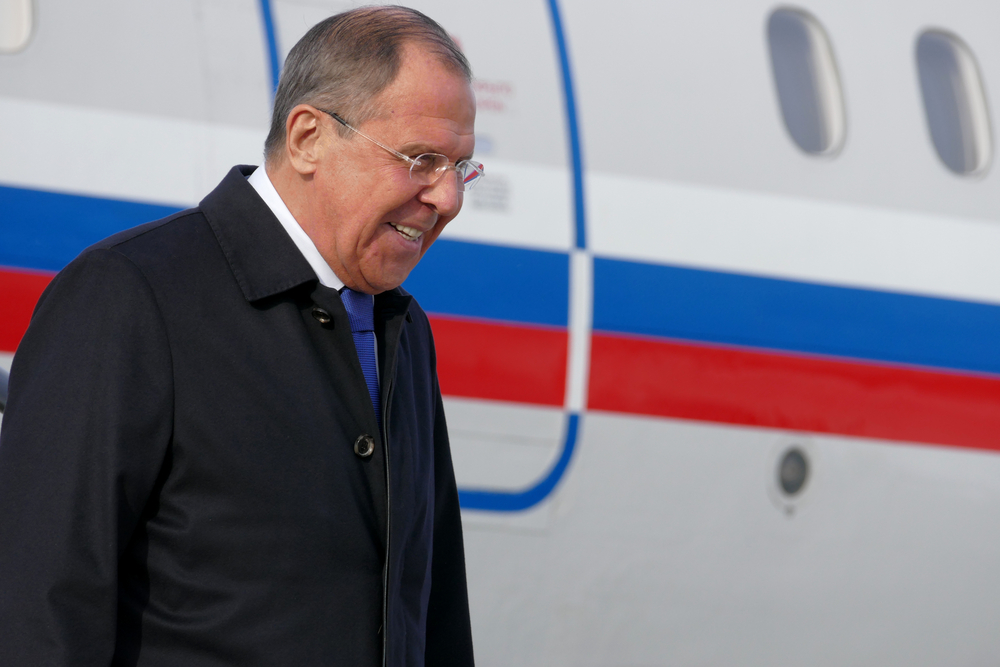Russia has shown continuous interest in strengthening its relations with Middle Eastern states, and extending its influence there in the face of unprecedented Western sanctions. The latest manifestation of Russian influence is the announcement of President Putin’s visit to Iran, where he is scheduled to meet with both the Iranian and Turkish presidents, mere days following US President Biden’s visit to the region. President Putin’s announced visit was preceded by numerous visits by Russian Foreign Minister Sergei Lavrov to several countries in the Middle East, including Algeria, Turkey, Bahrain, and Saudi Arabia. These visits by Russia’s foreign minister were focused on securing a number of objectives for his country in the region, most notably:
Coordination on energy: Continued coordination with OPEC Plus member states is of particular importance to Moscow. The organization appears poised to boost oil production, in response to pressures from consumer countries , in order to alleviate the high rise in prices created by the fallout from the war in Ukraine. Russian Deputy Prime Minister Alexander Novak, on the sidelines of the St. Petersburg International Economic Forum on June 16, stressed the importance of continued cooperation with OPEC Plus alliance in order to avoid the collapse of the oil market, noting that “the oil market is balanced, but there are still many uncertainties.”
Supporting the non-aligned Arab stance on the Ukraine war: Arab countries have maintained a neutral stance regarding Russia’s conflict in Ukraine. Many Arab countries have expressed the need to respect sovereignty, territorial integrity, political independence, non-interference in domestic affairs, and abstaining from the use or threat of force. Several have engaged in mediation efforts to resolve the crisis between Russia and Ukraine, support international efforts to diplomatically end the crisis, and aided European countries affected by the Russian energy embargo. Moreover, most countries in the Middle East have not taken part in imposing sanctions on Russia, and many Arab countries regard it as an ally. Russia is keen to encourage Middle Eastern countries to maintain this stance, which is important to avoid its diplomatic isolation.
Learning from Iran’s experience in dealing with sanctions: Russian Foreign Minister Sergei Lavrov visited Iran on June 22nd and met with the Iranian President. The visit was interpreted as expressing Russia’s interest in learning from Iran’s experience in dealing with US sanctions, as well as to strengthen Russian-Iranian trade relations. Trade between the two countries increased by more than 10% in the first quarter of this year, according to statements by Russian Deputy Prime Minister Alexander Novak on May 25th. US sanctions on Russia have revived interest in a previously stalled project, the “North-South Transit Corridor,” which would allow Russia to access Asian markets through Iran. Dariusz Jamali, director of a joint Iranian-Russian terminal in Estrakhan, announced on June 12th, that Iran’s state shipping company launched its first transport of shipment of Russian goods to India using this new commercial corridor passing through Iranian territory.
Doubling-down on regional engagement: Russia is keen to send a clear message that it does not intend to disengage from the Middle East despite its preoccupation with military operations in the Ukraine. Russia wished to demonstrate it will remain involved in regional issues, especially thee stalled Palestinian-Israeli peace process. It is worth noting that the Russian foreign minister, during his visit to Bahrain on May 31st, called for the revival of the peace process between Palestinians and Israelis, noting that the failure to settle the Palestinian-Israeli conflict is a focus of tension in the region.
Russia has expressed concern over Turkish President Recep Tayyip Erdogan’s threats to launch a military operation in northeast Syria. While keen to maintain a coordinated approach with Ankara, Russia fears that Turkish military intervention could lead to a serious deterioration in the situation in Syria. Russian Foreign Ministry spokeswoman Maria Zakharova, stressed on June 2, “Security on the Turkish border is ensured by the deployment of Syrian security forces.” Russia also condemned Israel’s attack on the old airport in Damascus on June 11.
The fallout from the war in Ukraine has reaffirmed the importance of the Middle East to international powers in general, and the US in particular. Record high oil prices revamped US interest in the region, urging its oil producing countries to increase oil production in order to reduce the rise in prices, with President Biden making a visit to the region this week, with energy high on the agenda. Europe has also sought to persuade countries in the region to compensate for shortfall in supply created by the imposition of sanctions on Moscow. Meanwhile, both Russia and China are seeking to strengthen their presence and influence in the region, to safeguard their own position and interests and security in the context of escalating international tensions. The Middle East appears once more to be center stage of this upcoming strategic competition between major world powers.


